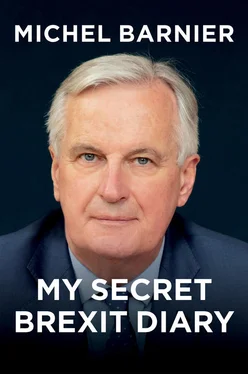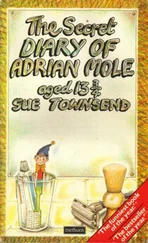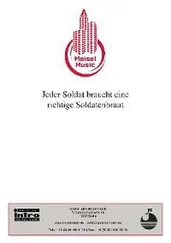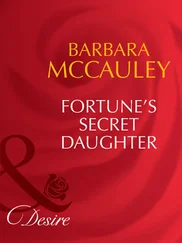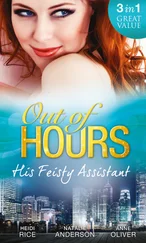Prime Minister Miro Cerar assures us that his country has no specific concerns about Brexit, and expresses his confidence in us: ‘We’ll be with you!’
Before meeting the Prime Minister, we share a meal with State Secretary for Foreign Affairs Sanja Štiglic, who welcomes us into a cottage on the edge of a large lake. It is cold and sunny. A wood fire crackles in the fireplace. It’s a moment of great warmth, and I pick up the thread of a longstanding relationship with this country, the first to emerge from the former Yugoslavia.
It was back in 1993, when I was the newly appointed Minister of the Environment in Édouard Balladur’s government, that I was charged with re-establishing dialogue and trust in the Upper Bearn region, which was in revolt against the state and its authoritarian creation of ‘bear reserves’. Apart from a few ecologists with support back in Paris, and the militant ecologist Éric Petetin, all the elected Pyrenean representatives, hunters and shepherds were at the time united in their resistance against the capital. Through visits, listening and dialogue, we managed to restore calm, and the Upper Bearn Heritage Institution was created.
Hunters and shepherds, reassured of their importance and now listened to and respected, accepted the reintroduction of a few bears, re-establishing a chain of biodiversity in the French Pyrenees that was about to become extinct. And that is how the bears of Slovenia – whose habitat is most similar to those of the Pyrenees – entered the EU in 1994, ten years before the rest of their country.
Wednesday, 26 October 2016: Zagreb
We arrive this morning in Zagreb, where I am pleased to meet the young Prime Minister, Andrej Plenković, whose new government looks set to make a positive contribution to the agenda of the twenty-seven.
As far as Brexit is concerned, the Prime Minister is engaged and attentive, particularly as regards the question relating to the mobility of citizens, an issue in which his country has a very particular interest. Croatia was the last country to join the European Union, on 1 January 2013, and is still in a transition period during which free movement of citizens is not complete. The Prime Minister therefore asks whether Croatians who wish to do so will benefit from free movement to the UK prior to its withdrawal.
Another concern is, of course, the desire to preserve the funding for the cohesion policy planned for the current budget period (2014–20). As Mr Plenković rightly says, reducing the differences in living standards between Europeans is a concern that lies at the heart of the Union’s project.
Strolling through the streets of the old town after this meeting, we pass a baroque building that houses The Museum of Broken Relationships. With goodwill, even after a painful break-up, it is sometimes possible to build a solid and harmonious relationship.
Friday, 11 November 2016: Focus on strategy
Upon our return from Austria, after a long week during which I also visited Denmark and Slovakia, Sabine, Stéphanie and I are working together with Jean-Claude Juncker’s staff. For the first time I will be presenting a negotiation strategy to the President of the Commission.
First, there are a few issues in the Article 50 negotiation upon which agreement is essential, including the financial settlement that the UK must reach in order to settle accounts with the EU, and the need to agree upon the acquired rights of EU citizens living in the UK and UK citizens living in the EU. We also need to work on border issues, particularly in Ireland, and find a way to satisfy all aspects of the commitments of the Good Friday (Belfast) Agreement, signed on 10 April 1998 to end the Troubles that had torn Northern Ireland apart for more than thirty years. These three issues will have to be addressed in the first phase.
Second, Article 50 provides that, in stipulating the terms of withdrawal, the exit agreement should take account of the future relationship with the remaining countries. In doing so, the existing models – Norway, Switzerland, Canada and others – cannot be used as a reference, contrary to what is already being suggested in some quarters, because they concern countries that are far less economically integrated with the EU than the UK is. Any future agreement with the UK will therefore need to be far more thorough in establishing a ‘level playing field’, particularly with regard to competition rules and jurisdictional authority.
Third, once the shape of the new relationship has been established, it will be possible to start thinking about a time-limited transition period, the aim of which will be to make the move to this new relationship as smooth as possible. The transition will need to be heavily supervised and will probably require continuation of some of the acquis communautaire , in particular the regulatory framework of the internal market, i.e. standards, norms, the various supervisory authorities and, necessarily, the authority of the EU Court of Justice. Legally, the establishment of such a transition period must form part of the exit agreement.
Finally, just as important as the substantive issues is the organization of the negotiations. A few days earlier, Georg brought to my attention an article written by Andrew Duff, a former British MEP and a great connoisseur of EU arcana. Duff points out that the European Councils are likely to be crucial points in the negotiations. And he is quite right! Controlling the timeline, setting the tempo, is key. We will structure the negotiations according to our own calendar.
Monday, 21 November 2016: Raising a glass of Prosecco to Boris
Sabine Weyand, Stefaan De Rynck and I have just met Italian Prime Minister Matteo Renzi’s sherpa at the Chigi Palace. It’s late, but many are still out on the sumptuous streets of Rome around the Farnese Palace.
I got to know Stefaan De Rynck in 1999 when he became my spokesman at the Commission for Institutional Reform. I have always found it reassuring to turn to the wise and subtle analyses of this Flemish Belgian. He is now in charge of communication and relations with think-tanks in my team, and closely follows the public debate in the UK.
A few days ago, the British Foreign Secretary Boris Johnson got involved in a nasty dispute with the Italian Minister for Economic Development Carlo Calenda, and ended up threatening to stop buying Prosecco.
And so we decide to have a glass of Prosecco on the terrace; the moment is immortalized in Stefaan’s tweet, which will be reported throughout the British press… Protectionism is not the right attitude, nor the right message to be sending!
Wednesday, 30 November 2016: Facing the press
For the first time since I took office, this morning I am speaking to the press, having been invited by Jean-Claude Juncker to present the progress of our work to the College of Commissioners.
The Berlaymont press room is packed. Journalists have come from all over Europe, some from further afield. There is a burst of flash photography. The Greek spokesman for the Commission, Margaritis Schinas, hands over to me. I choose to open this first briefing in English.
I admit that I still have some progress to make in this language. I did have a good teacher, though: on one occasion I received a sort of personal English lesson from the Queen of England herself! It was Tuesday, 6 April 2004 and Prime Minister Jean-Pierre Raffarin was hosting a lunch in honour of Her Majesty Queen Elizabeth, who had come to Paris to mark the centenary of the Entente Cordiale.
As Foreign Secretary, I had the honour of being seated to the right of the Queen, who speaks impeccable French. As I had to go straight after lunch to the National Assembly to discuss current affairs, my intention was to give a special greeting to a delegation from the House of Lords and the House of Commons who would be attending the session for a while from the gallery.
Читать дальше
